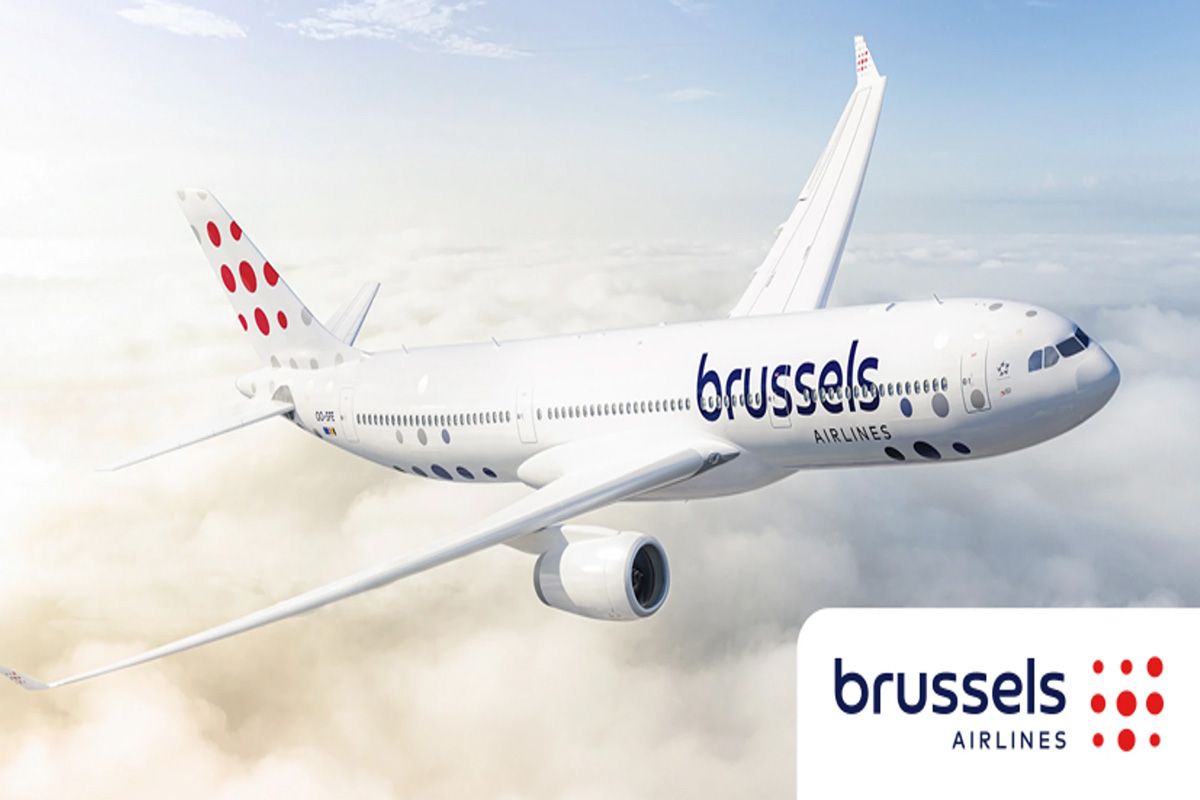Brussels Airlines improved its financial performance in 2021
The Covid-19 pandemic continues to weigh heavily on airlines' EBIT. As expected due to the pandemic crisis, Brussels Airlines booked a loss of EUR 189 million in fiscal year 2021, an improvement of 35%. compared to the previous year.
Losses were reduced thanks to the successful Reboot Plus transformation plan and strict cash management. Revenues increased by 35%. to 560 million, while operating costs increased only by 5%.
The number of passengers increased by 47 percent. up to 3.5 million.
Grid, fleet and human development in 2022.
2021 was another year marked by the Covid pandemic and still required a high level of flexibility. The year started with a very restricted flight schedule, in line with low market demand caused by high infection rates and roadblocks across Europe, followed by a three-month travel ban issued by the Belgian government. This ban had a significant impact on Brussels Airlines' first quarter performance.
On April 19, the travel ban was lifted and demand began to increase again while the vaccination campaign also gained momentum. Accordingly, in the summer there was a sharp increase in demand. Brussels Airlines restarted a fully operational hub in June and increased its capacity from 12% in the summer. up to 53 percent. pre-pandemic levels. Demand in the summer period was longer than in other years due to the effect of postponed travel plans and the willingness to travel after the airport closure. This strong and sustained summer peak led to a positive third quarter result and the first gain since the start of the pandemic. November saw an increase in the number of infections and again many restrictions, which caused a decline in demand again. There was a strong outgoing peak at the end of the year in the summer, after which winter demand fell due to the arrival of the Omicron variant.
After completing the restructuring phase of the Reboot Plus plan and introducing numerous changes, Brussels Airlines unveiled the new brand in November 2021 to strengthen its Belgian identity and mark a fresh start after the coronavirus crisis. The new branding was an important signal to the market that the airline was here to stay. As an additional symbol of future readiness in June 2021. it was decided to add in the summer of 2023. three Airbus A320neos aircraft in Brussels Airlines' fleet. With these new, state-of-the-art aircraft and the recall of three older A319s, Brussels Airlines will take a significant step towards further modernizing its fleet and reducing carbon dioxide and noise emissions from its medium-haul network.
Throughout 2021. demand in the African network was very stable again, mainly thanks to the business and VFR (Visiting Friends and Relatives) segment, while the European segment was more volatile. In total, the year-round transport capacity (available photo-kilometers) was 62 percent. higher than in 2020., and Brussels Airlines performed 39 percent. more flights, accepting 3.5 million passengers.
The passenger seat occupancy rate was 1.1 percentage point lower than in the previous year and amounted to 67.2%. (a year earlier: 68.3 percent.). After adjusting for foreign exchange, the seat occupancy rate decreased by 6.9%. Air traffic revenues increased thanks to the traffic increase by 31%. up to EUR 503 million (previous year: EUR 384 million).
Revenues increased by 35%. up to EUR 560 million (previous year: EUR 414 million). Operating income increased by 31%. up to 599 million EUR (previous year: 456 million EUR). Austerity measures and strict cost discipline limited the increase in operating costs. These costs, amounting to EUR 788 million, increased by only 5%. compared to the previous year. Higher fuel costs (+62%.) resulting from higher prices and volumes, as well as higher fees and commissions resulting from volumes (+55%.) were partially offset by lower staff costs (-17%.).
In fiscal 2021, Brussels Airlines adjusted EBIT was EUR -189 million (previous year: EUR -293 million). Adjusted EBIT margin was -33.8 percent. (a year earlier: -70.8 percent.). EBIT was also EUR -189 million (previous year: EUR -332 million). The value of last year's result was negatively affected by fleet write-downs for the total amount of EUR 33 million.
Key figures from 2021.
Brussels Airlines stepped up its restructuring program in response to the pandemic. The program & # 8220; Reboot Plus & # 8221; is the basis of a sustainable future for airlines. Under this scheme, Brussels Airlines has completed its restructuring phase. Two Airbus A330s have left the long-haul fleet and eight aircraft of the A320 family have been removed from the short- and medium-haul fleet. The number of employees has been reduced by more than 20 percent. compared to pre-pandemic levels. From January 2021. all Brussels Airlines work groups have new collective bargaining agreements in place which allow for competitive employment costs. In 2021. The transformation plan has entered a new phase – a phase of improvement and investment in technology and simplification to increase efficiency.
“ This year we focused on the second phase of Reboot Plus, which is the improvement phase. We created the new Brussels Airlines. Our rebranding was a very conspicuous symbol of this, while behind the scenes we invested in a new crew planning tool, refurbished office space and many projects that either increase efficiency or simplify our processes. I would like to thank all employees of Brussels Airlines for the achievements of last year. Together, we create a bright future for our company & # 8221; – Peter Gerber, CEO of Brussels Airlines.
Outlook for 2022
Brussels Airlines will gradually increase its capacity to reach 80% by July. 2019 level, consolidating its position as Belgium's home carrier with a strong focus on leisure and strengthening its position in Africa with nine aircraft. Throughout the year, the airline plans to use 74 percent. its transport capacity for 2019.
& # 8220; We had some tough winter months due to the Omicron wave, but we see a promising spring and summer in terms of demand. As travel regulations continue to weaken and measures across Europe will be relaxed, we anticipate a return to 80%. Seating capacity at pre-pandemic levels during the summer holidays. Cost awareness remains part of our DNA to achieve structural profitability. In this regard, our plans remain unchanged: we are aiming for a black zero in 2022 and we are still aiming to reach 8%. EBIT in 2024, under unchanged circumstances. Thanks to the successful implementation of our Reboot Plus plan, we have created the right foundation to grow and look to a profitable future & # 8221; – Nina Öwerdieck, Financial Director of Brussels Airlines.


